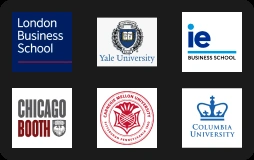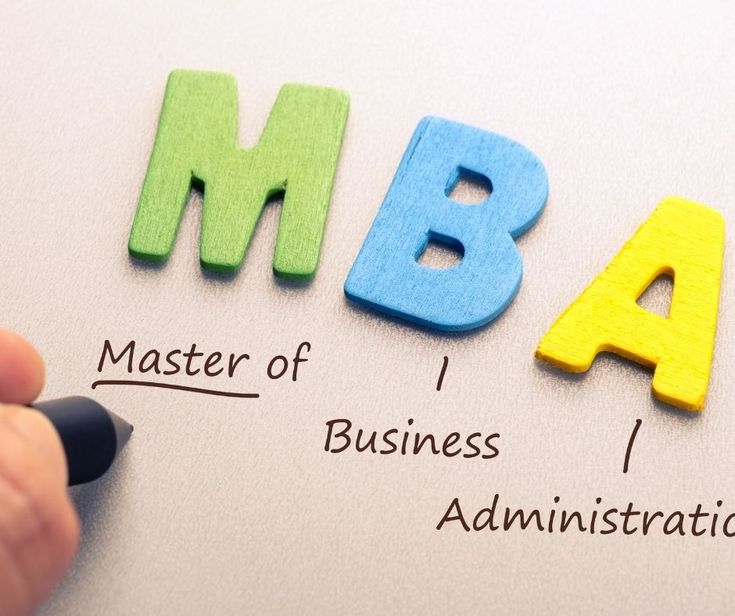
Deferred MBA Programs
Deferred MBA: Everything You Need to KnowDeferred MBA programs are becoming increasingly p…
Table of Contents
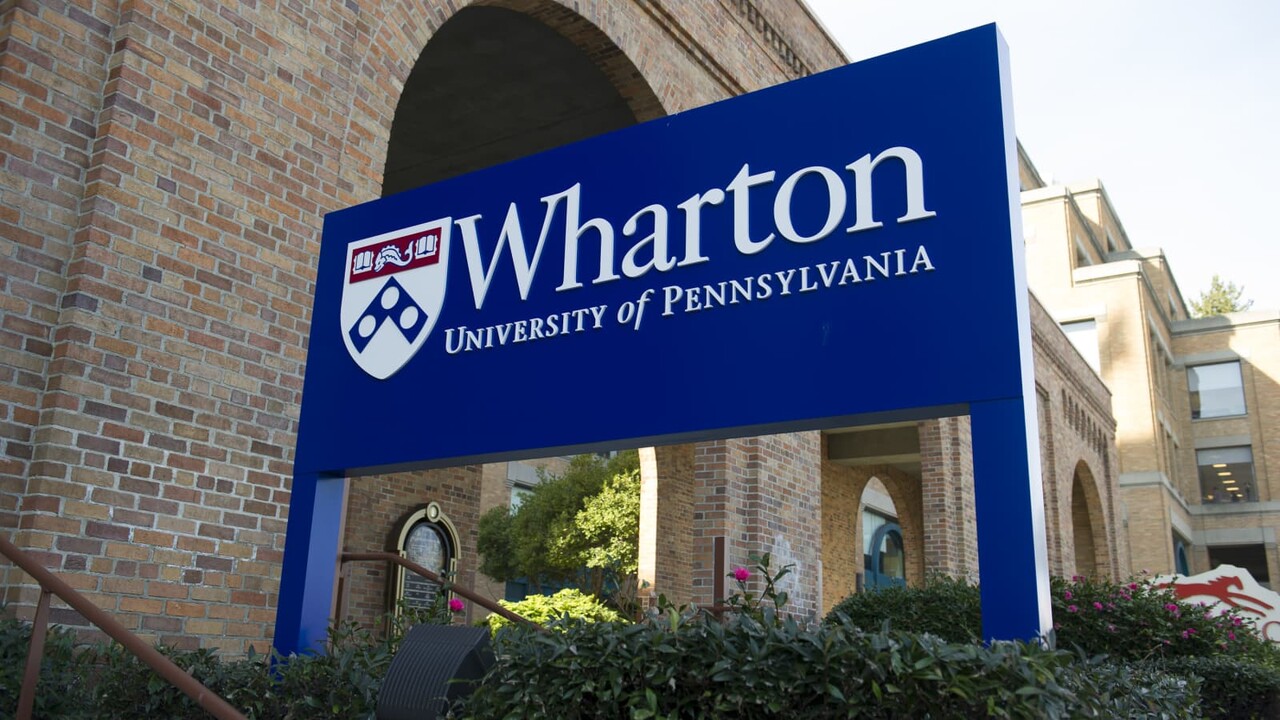
When it comes to top-tier business schools, the Wharton School of the University of Pennsylvania is often the first name that comes to mind. Founded in 1881, Wharton boasts a long-standing reputation as one of the best business schools in the world, particularly in areas like finance, leadership, and entrepreneurship.
But what sets Wharton apart from the rest, and why should you consider it for your MBA? Well, choosing the right MBA program can be life-changing, especially if you're aiming for a high-impact career in business, management, or even entrepreneurship. Wharton's MBA program is known for its rigorous curriculum, diverse student body, and powerful global network. But there’s so much more to it, and I’ll help you break it all down!
The Wharton MBA program offers a flexible, customizable experience to fit your career goals. Whether you’re interested in full-time, executive, or even part-time studies, Wharton’s program structure can adapt to your needs. Here are a few highlights:
Why Wharton Stands Out: Wharton’s MBA is particularly strong in:
This combination of flexibility and depth is what makes Wharton one of the most sought-after MBA programs globally.
Wondering what the Wharton MBA cohort looks like? The class profile speaks to the program’s diversity and high caliber of students.
Class Size: 877 students
Average GMAT Score: 733
Average GRE Scores: Verbal 162, Quantitative 162
Average GPA: 3.6
Work Experience: 5 years (on average), with a range of 1-17 years
Women Representation: 50%, maintaining gender parity for the second year
International Students: 36% from 77 countries
Wharton emphasizes leadership development, offering opportunities like Leadership Ventures (experiential challenges like mountaineering or sailing) and Leadership Development Workshops focused on emotional intelligence, team-building, and self-awareness. These initiatives help shape future leaders by providing hands-on experiences that hone leadership skills.
When applying to the Wharton MBA program, it’s important to know what you’re up against. Wharton is known for its rigorous admissions process and selective intake of students.
Current Acceptance Rate: The acceptance rate for Wharton's full-time MBA program typically hovers around 22%, though it fluctuates slightly each year based on the applicant pool. This makes Wharton competitive but slightly more accessible than peer schools like Stanford, which has an acceptance rate of around 7%.
If you're asking, "How do I get into Wharton?", you’ll need to stand out with a mix of stellar academic credentials, work experience, and personal achievements. Here's what the admissions committee typically looks for:
While Wharton’s admissions process shares similarities with other top programs, such as the need for essays, recommendations, and interviews, Wharton places a heavy emphasis on teamwork and leadership potential. One unique aspect is the Team-Based Discussion (TBD), a group exercise where applicants are assessed on their ability to collaborate in a team setting.
Compared to other elite programs like Harvard and Stanford, Wharton’s admissions process is known to be less interview-heavy and more focused on real-world, collaborative skills.
Wharton has consistently been ranked among the top business schools globally. Its prestige, especially in fields like finance and leadership, is unmatched. Let’s take a look at how Wharton fares in some of the world’s most respected rankings:
Ranking Agency | 2024 Global Ranking |
| Financial Times (FT) | #1 |
| QS World University Rankings | #2 |
| Bloomberg Businessweek | #3 |
Wharton particularly shines in categories like:
Here’s a quick comparison of Wharton with a few of its major competitors in the U.S. MBA scene:
Business School | Global Ranking | Finance Ranking | Entrepreneurship |
| Wharton | #1 (FT) | #1 | #2 |
| Harvard Business School | #3 (FT) | #6 | #1 |
| Stanford GSB | #2 (FT) | #4 | #3 |
| Chicago Booth | #4 (FT) | #2 | #5 |
As you can see, Wharton is a top player not only overall but especially in finance, making it a strong choice for those interested in careers related to financial services, private equity, or investment banking.

One of the best aspects of the Wharton MBA program is its balance between a structured core curriculum and flexibility in choosing electives. This combination allows students to gain a solid foundation while customizing their studies based on their career goals.
Core Courses
The first year of the Wharton MBA focuses on building a strong base in areas like:
These core courses ensure that all Wharton graduates have a comprehensive understanding of the business fundamentals, no matter their prior background.
Wharton offers 19 majors, giving students the opportunity to specialize in the areas that align with their career aspirations. Here are some of the most popular majors:
Major | Focus |
| Finance | World-renowned for preparing students for roles in investment banking, PE |
| Marketing | Deep dive into consumer behavior, branding, and digital marketing |
| Entrepreneurship | Ideal for those looking to start their own business or work in startups |
| Healthcare Management | Tailored for those interested in the intersection of business and healthcare |
Whether you’re passionate about finance, healthcare, or even product management, Wharton offers a major that will suit your needs.
Wharton understands the importance of global experience in today's business world, which is why they offer a wide range of international opportunities, including:
These global opportunities make Wharton a great choice if you're looking to gain a truly international business perspective.
Pursuing an MBA at Wharton is a significant investment, so it’s important to understand the full financial picture before applying. Here’s a breakdown of the total cost of attendance for the Wharton MBA program.
Expense Category | Estimated Cost (Per Year) |
| Tuition | $84,874 |
| General Fee | $3,552 |
| Health Insurance | $3,324 |
| Room & Board | $21,050 |
| Books, Supplies & Miscellaneous | $7,748 |
| Total (1 Year) | ~$120,548 |
Keep in mind, these numbers represent the 2024 estimates and include not just tuition but living expenses, books, and health insurance. Over the two years, you’re looking at a total cost of approximately $241,000.
For those worried about the price tag, Wharton offers merit-based fellowships and need-based financial aid to help ease the financial burden. Scholarships range from partial awards to full tuition coverage.
International students are equally eligible for most scholarships, making it a little easier for them to manage the Wharton MBA fees.
Many students also opt to finance their MBA through student loans. Wharton partners with several loan providers, including Prodigy Finance and Discover, which offer loans to international students without requiring a U.S. cosigner. You can also explore employer sponsorships, especially if you’re pursuing an Executive MBA.
A big part of Wharton’s allure is its strong career outcomes. Whether you’re looking to break into finance, consulting, tech, or entrepreneurship, the Wharton MBA program equips you with the skills and network to succeed.
Here’s a quick look at employment outcomes for Wharton’s MBA Class of 2023:
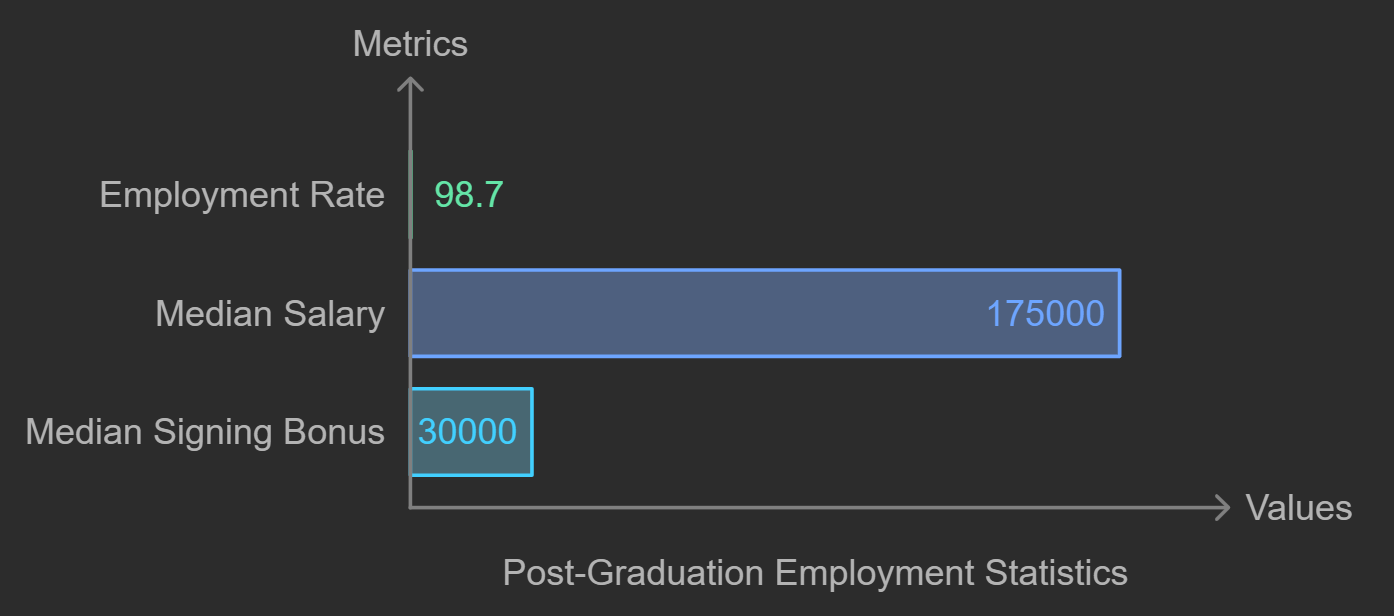
Wharton’s high employment rate and attractive salary packages speak to the quality of its MBA program and the strength of its career services.
Wharton graduates are highly sought after by top employers. Here are the leading industries that hired Wharton MBAs in 2024:
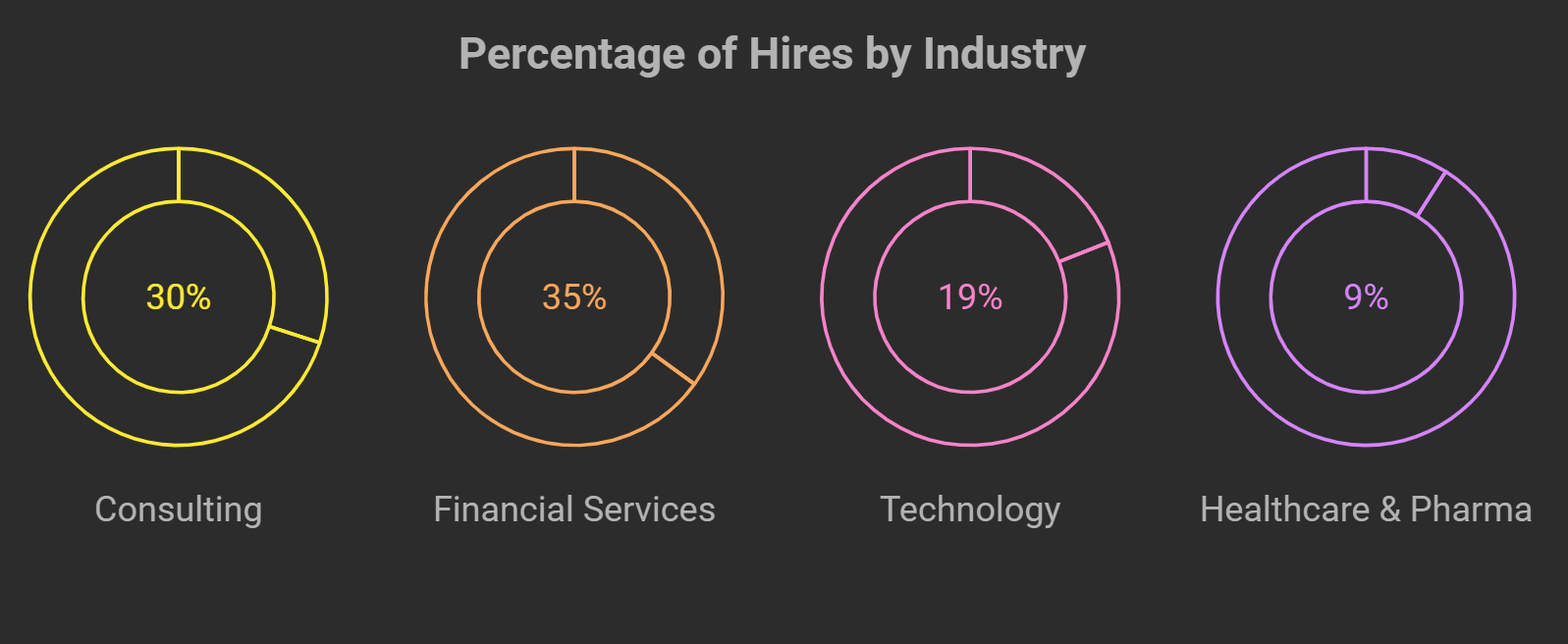
Top companies recruiting from Wharton include McKinsey & Co., Goldman Sachs, Google, Amazon, and Bain & Co. Whether you’re aiming for finance, tech, or consulting, Wharton’s connections with global firms are hard to beat.
The average base salary for Wharton MBA graduates is around $175,000, with some industries like consulting and finance seeing even higher numbers. Signing bonuses typically range from $20,000 to $30,000, adding a substantial amount to first-year compensation.
The power of the Wharton alumni network cannot be overstated. With over 100,000 alumni spread across 153 countries, Wharton’s alumni network is one of the largest and most influential in the world.
How the Alumni Network Helps:
Additionally, Wharton’s Career Management Services continues to support graduates even after they’ve left campus, offering career coaching, resume reviews, and access to job databases.
Applying to Wharton can seem daunting, but understanding the application process step by step makes it easier. Wharton requires the following:
The essays are a key part of the application. Wharton typically asks for two main essays:
In this essay, applicants need to clearly define their career goals and explain how Wharton is the right place for them to achieve these goals. Be specific! Mention Wharton’s resources, clubs, or majors that align with your goals.
For this essay, Wharton is looking for insight into your character. Highlight a personal experience or challenge that has shaped who you are today. Don’t just talk about achievements; focus on your journey and growth.
Wharton’s interview process includes a Team-Based Discussion (TBD), where you’ll collaborate with other applicants. Here are a few tips to ace your interview:

Given the competitive nature of Wharton’s admissions, you’ll need to find ways to differentiate yourself.
Wharton values:
The admissions committee wants to know how you’ve shown leadership, how you work with others, and how you solve problems.
In your essays and interview, emphasize your leadership experiences. But remember, leadership isn’t just about being in charge. It’s about influence, collaboration, and making an impact. Talk about times when you’ve led a team, resolved conflicts, or taken the initiative on a project.
Also, demonstrate your ability to work in teams. Wharton’s MBA program is heavily focused on teamwork, so showing how you’ve excelled in team environments is crucial.
If you're deciding between the Wharton MBA and other top programs like Harvard, Stanford, or Columbia, it’s important to understand the differences in curriculum, culture, and career outcomes. Let’s break it down:
Program | Wharton | Harvard Business School | Stanford GSB | Columbia Business School |
| Curriculum Focus | Finance, leadership, innovation | General management, leadership | Entrepreneurship, innovation | Finance, consulting, media |
| Average GMAT | 733 | 730 | 737 | 729 |
| Class Size | 877 | 1,000+ | ~420 | 782 |
| Teaching Style | Mix of lectures, case studies, team projects | Case study method | Experiential, case studies | Lectures, case studies |
| Global Focus | Strong global immersion programs | Strong U.S. focus | Entrepreneurial mindset with a global edge | Global experiences via immersion programs |
| Key Strengths | Finance, leadership, innovation | Leadership, general management | Entrepreneurship, innovation | Finance, media, real estate |
If your career goals involve finance, consulting, or global leadership roles, Wharton offers unparalleled opportunities. Its flexible curriculum and Global Modular Courses (GMCs) also make it appealing if you’re looking to gain international business experience.
However, if your focus is primarily on entrepreneurship or tech, and you prefer a smaller class size, Stanford GSB might be a better fit.
An MBA from Wharton is a significant investment, but the potential return is just as significant. Here’s how you can evaluate the ROI of a Wharton MBA, including long-term career benefits and salary growth.
With a total cost of approximately $241,000 (including tuition, fees, and living expenses), understanding the return on investment (ROI) is essential. Fortunately, the average post-MBA salary for Wharton graduates—along with rapid salary growth over time—makes the degree worth the cost.
Metric | Details |
| Median Post-MBA Salary | $175,000 |
| Median Signing Bonus | $30,000 |
| Average Salary 5 Years Post-MBA | $225,000 - $300,000 |
| Salary Increase (Pre to Post-MBA) | 80-100% |
Wharton’s alumni consistently report significant salary increases and career advancement within just a few years of graduation. Graduates often move into leadership roles more quickly than their peers, thanks to the strong focus on leadership development in the program.
In addition, Wharton’s emphasis on finance and data-driven decision-making means graduates have the analytical skills that employers across industries covet. Whether you’re heading into consulting, investment banking, or tech, a Wharton MBA positions you for top-tier roles with long-term financial success.
Wharton’s reputation in finance is unmatched. Many of its graduates go on to work in private equity, venture capital, or investment banking—fields where salaries can skyrocket with experience. Graduates from Wharton’s finance program are known for quickly rising through the ranks, and many find themselves in C-suite roles or founding their own successful businesses.
While many business schools offer excellent education, Wharton’s unique combination of history, resources, and program offerings truly sets it apart.
Wharton has maintained its position as the world leader in finance education for decades. The school’s influence in shaping the global finance sector is unparalleled, producing some of the top executives in banking, private equity, and hedge funds. But it’s not just about finance—Wharton is also a breeding ground for entrepreneurs, thanks to its Innovation and Entrepreneurship Program.
For those with global ambitions, the Lauder Institute at Wharton is a standout feature. The MBA/MA dual-degree program allows students to pursue an MBA while simultaneously earning a Master’s in International Studies, with a focus on language and culture. This program prepares graduates for leadership roles in the global economy.
Wharton also offers a range of other dual-degree programs, including:
One of the most innovative aspects of the Wharton MBA is its Business Analytics program. With businesses increasingly relying on data-driven decision-making, Wharton integrates analytics into its curriculum, ensuring that graduates are equipped with the tools to make informed, strategic decisions based on data. This emphasis on analytics is particularly beneficial for careers in consulting, tech, or any field that requires deep analytical insights.
Securing a spot in Wharton’s MBA program requires thoughtful preparation and strategic planning. Here’s a step-by-step guide to help you prepare a successful Wharton MBA application.
To make sure you’re fully ready, here’s a rough timeline for preparing your application:
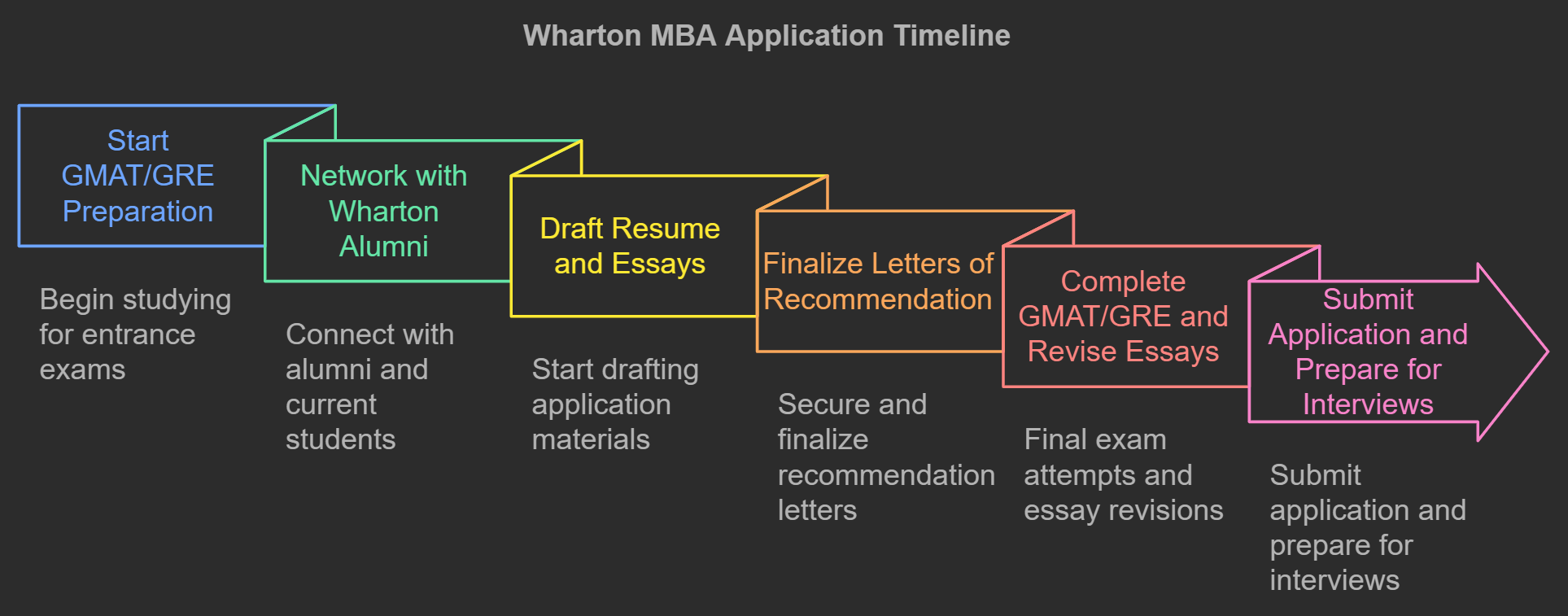
Key Steps: GMAT/GRE, Essays, Recommendations, and Interviews
One of the most overlooked but critical steps in your application preparation is networking with Wharton alumni and current students. Speaking to those who have gone through the program can provide invaluable insights and even help strengthen your application.
By networking early, you can also reference these conversations in your essays, showing the admissions committee that you’ve done your homework and are truly passionate about Wharton.
For more detailed information and updates, be sure to explore the following resources:

Choosing the right MBA program is a big decision, and Wharton has a lot to offer—whether you’re passionate about finance, entrepreneurship, or leadership. With its rigorous curriculum, expansive global network, and strong focus on data-driven decision-making, a Wharton MBA can be a powerful catalyst for career growth.
Wharton’s long-standing reputation in finance, coupled with its global opportunities and leadership development programs, makes it one of the best choices for aspiring business leaders. If your career goals align with Wharton’s strengths and you’re ready to invest in a life-changing experience, Wharton could be the right fit for you.
At MastersBuddy, we’re here to help you navigate the complexities of the Wharton MBA admissions process. From perfecting your essays to acing your interviews, our expert guidance will set you up for success. Connect with us today for personalized support, tips, and insights from Wharton alumni. Let’s get you one step closer to your dream MBA!
Reach out now and start your Wharton MBA journey with MastersBuddy!

